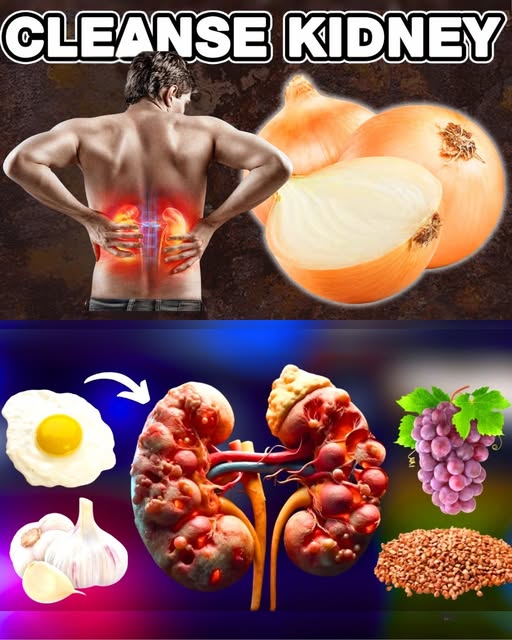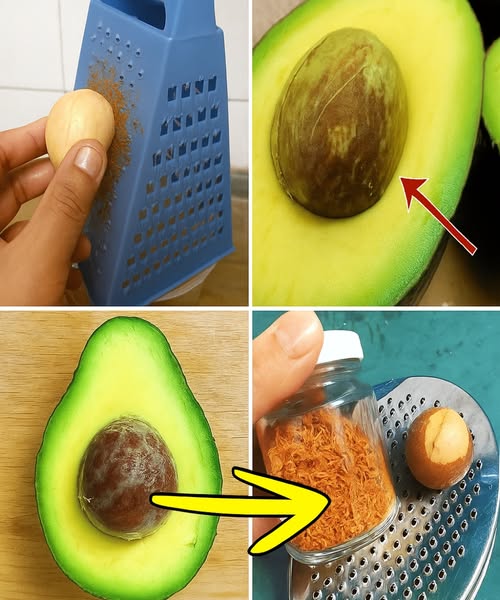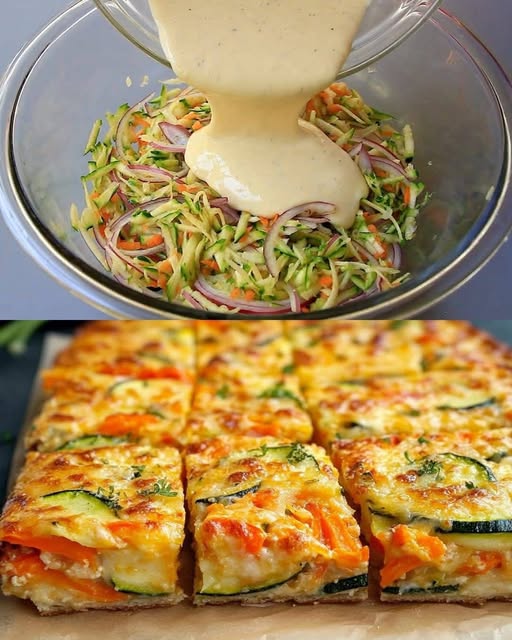Introduction:

Your kidneys are silent heroes. Every day, they filter around 50 gallons of blood, remove toxins, balance fluids, and keep your body humming. Yet, many people don’t realize the danger of neglecting these vital organs until problems strike — often with devastating consequences.
With chronic kidney disease (CKD) affecting 1 in 7 adults in the U.S., and millions more at risk, taking proactive steps toward kidney health is no longer optional — it’s urgent.
If you’re asking yourself:
- What foods cleanse the kidneys?
- Can diet really reverse kidney damage?
- What are the top kidney-healing foods?
You’re in the right place. In this article, we reveal the Top 10 Superfoods Scientifically Proven to Heal and Protect Your Kidneys — with facts, actionable tips, and answers to common questions.
Top 10 Superfoods That Can Heal Your Kidneys Naturally
1. Blueberries – The Antioxidant Powerhouse
Why they help: Blueberries are rich in anthocyanins, powerful antioxidants that reduce inflammation and oxidative stress — key contributors to kidney damage.
Research-backed fact: A study in Oxidative Medicine and Cellular Longevity found that diets high in berries lowered kidney stress markers and improved overall renal function.
How to use: Add ½ cup of fresh or frozen blueberries to your morning oatmeal or smoothies.
Quick Tip: Go organic when possible to avoid pesticide exposure — which can further burden your kidneys.
2. Cabbage – Detox-Friendly and Diuretic
Why it heals: Cabbage is a low-potassium, fiber-rich vegetable loaded with vitamin K, C, and B6. It helps flush toxins and supports liver function — indirectly boosting kidney performance.
Kidney bonus: Its natural diuretic properties help reduce excess fluid retention, a common issue in CKD patients.
Actionable idea: Use cabbage in soups, salads, or as a wrap substitute.
3. Garlic – Nature’s Antibiotic for Kidney Health
Why it works: Garlic reduces blood pressure and cholesterol, easing the load on your kidneys. It contains allicin, an anti-inflammatory and antimicrobial compound that also fights infections.
Did you know? High blood pressure is the second leading cause of kidney failure. Garlic actively helps manage it.
Tip: Use fresh crushed garlic in meals or take aged garlic supplements (consult your doctor).
4. Red Bell Peppers – Vitamin-Rich & Kidney-Safe
Why they stand out: Unlike most vegetables, red bell peppers are low in potassium but high in vitamins A, C, and B6, and antioxidants like lycopene — excellent for reducing kidney inflammation.
Versatile usage: Eat raw with hummus, stir-fry, or roast them for a nutrient-packed side dish.
5. Cranberries – UTI Protection and Kidney Cleanser
Why they’re essential: Cranberries prevent urinary tract infections (UTIs) by preventing bacteria from sticking to the urinary tract lining. Left untreated, UTIs can progress and damage the kidneys.
Stat check: 1 in 3 women will experience a UTI by age 24. Regular cranberry consumption can reduce recurrence by up to 42%.
Go for: Unsweetened cranberry juice or dried cranberries in moderation.
6. Cauliflower – Anti-Inflammatory and Detoxifying
Kidney-friendly qualities: Low in potassium and phosphorus, cauliflower is packed with fiber, vitamin C, and glucosinolates — compounds that assist the body in neutralizing toxins.
Pro tip: Steam it or mash it as a low-sodium, low-potassium substitute for potatoes.
7. Apples – Fiber-Rich and Anti-Cholesterol
Why they matter: Apples contain soluble fiber that helps lower cholesterol and blood sugar levels — both risk factors for kidney disease. Their natural antioxidants also reduce inflammation.
Did you know? Just one medium apple contains 4 grams of fiber, aiding digestion and easing kidney stress.
Tip: Eat raw or bake for a delicious kidney-safe dessert.
8. Olive Oil – Anti-Inflammatory Liquid Gold
Why it heals: Extra virgin olive oil is rich in monounsaturated fats and oleic acid, which have potent anti-inflammatory effects — essential for slowing down CKD progression.
Clinical insight: A Mediterranean-style diet that includes olive oil is linked with a 35% reduced risk of kidney decline.
Daily use tip: Swap vegetable oils for cold-pressed extra virgin olive oil in salads or cooking.
9. Fatty Fish (like Salmon or Mackerel) – Omega-3 Rich and Anti-Inflammatory
Why it’s critical: Omega-3 fatty acids reduce triglycerides, lower blood pressure, and decrease protein in urine — all vital factors in protecting your kidneys from stress.
Stat insight: The American Heart Association recommends two servings per week of fatty fish for cardiovascular and renal support.
Warning: Choose wild-caught and avoid high-mercury varieties like swordfish.
10. Watermelon – Natural Hydration + Detox
Kidney boost: Watermelon has a high water content and contains citrulline, which supports blood flow and helps flush toxins through the kidneys.
Low in potassium, it’s safe for most kidney patients — and helps prevent kidney stones by diluting the urine.
Use it wisely: Eat fresh slices or blend with mint for a hydrating, kidney-cleansing drink.
Frequently Asked Questions (FAQs)
❓Can food really reverse kidney disease?
Answer: While food alone cannot reverse advanced kidney disease, adopting a renal-supportive diet can slow progression, improve function, and reduce symptoms. Early-stage kidney problems respond well to dietary changes.
❓What foods are hardest on the kidneys?
Avoid:
- Processed meats
- Salty snacks
- Sugary drinks
- High-potassium fruits like bananas
- Dairy-heavy meals
These foods increase sodium, phosphorus, and potassium — all of which stress your kidneys.
❓How much water should I drink to support kidney health?
General guidance:
Most adults should aim for 8–10 cups of water per day unless on fluid restriction (common in CKD). Water helps flush toxins and supports filtration.
❓Is coffee bad for kidneys?
Answer: In moderation (1–2 cups/day), coffee isn’t harmful to most people. However, excessive caffeine and sugary additions can dehydrate you and stress the kidneys.
❓What lifestyle habits complement a kidney-friendly diet?
- Exercise regularly (30 min/day)
- Control blood pressure and blood sugar
- Avoid NSAIDs like ibuprofen
- Stop smoking
- Limit alcohol
Pairing food with these habits enhances overall kidney resilience.
Conclusion: Don’t Wait to Protect Your Kidneys – Start Today
Your kidneys don’t ask for much — but when neglected, they can cause major health crises that are painful, costly, and irreversible. The good news? You can take control right now, starting with your next meal.
By adding these 10 powerful kidney-healing superfoods to your diet, you’ll not only support filtration and detox functions, but also reduce inflammation, manage blood pressure, and enhance your overall well-being.
Final Thought:
If you want to feel better, live longer, and avoid the pain of kidney failure — start by nourishing your kidneys with intentional, powerful, and healing foods.


